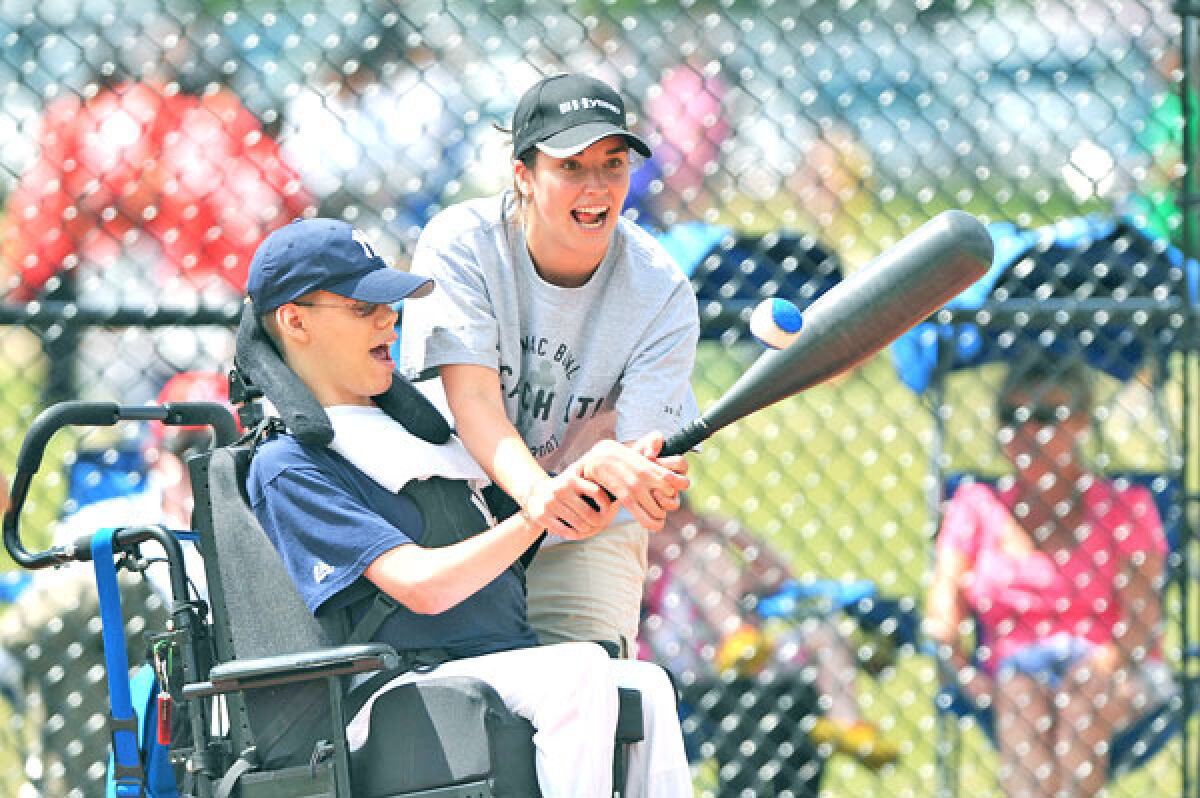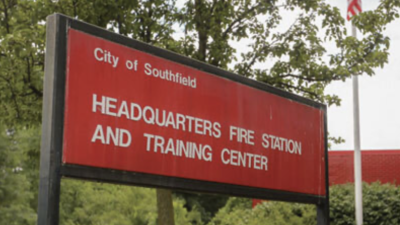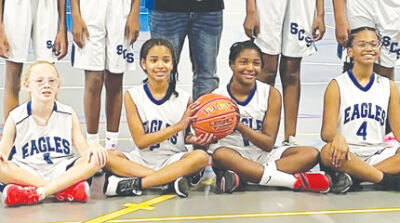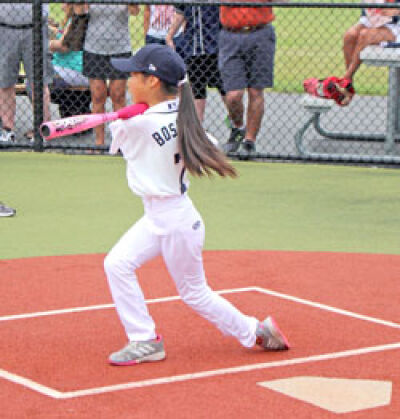
The Miracle League came to Southfield 20 years ago and became Michigan’s first adaptive baseball field.
Photo by Stephen Peck
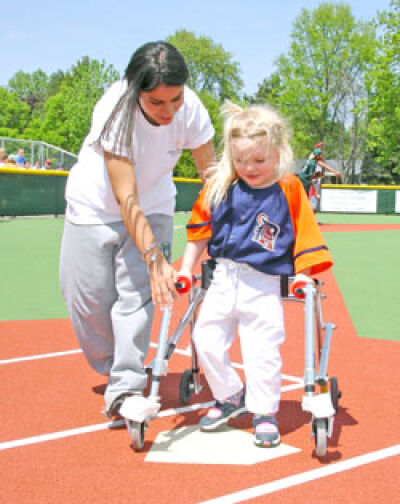
The Miracle League welcomes children 4 and up to join a noncompetitive league, and competitive leagues are available for older kids and young adults.
Photo by Stephen Peck
SOUTHFIELD — Anyone who has had the privilege of attending a game at the Miracle League of Michigan will tell you that it’s so much more than simply playing a game of baseball.
Since the first field opened in Conyers, Georgia, in April 2000, the Miracle League has granted children with physical or cognitive disabilities the opportunity to play in a noncompetitive league and, later on, they added a competitive league.
Stephen Peck, the founder and director of the Easterseals Miracle League of Michigan, emphasized how life-changing Michigan’s first adaptive baseball field has been since its founding in 2004.
“When you see them hit the ball, which was really the volunteer hitting the ball, you just look at the joy on the player’s face, and it was like they hit the ball. And they did. Because buddy and player become one. Arms, eyes or whatever deficit someone has, we have someone there to help overcome that. So, I always say when you talk about disabilities, and you look at our players with disabilities, I don’t see the disability — I see the ability, because it’s amazing.”
The Miracle League offers noncompetitive teams for ages 4 and up and competitive youth teams for individuals in their late teens and even early 30s. The teams fill up with around 400 individuals every summer and fall. Every year, the Miracle League draws in 1,200 volunteer slots for “buddies,” who assist the player during the game.
“I call this a win-win-win. It’s a win for our players, because they never had the opportunity,” Peck stated. “Now they’re in major league jerseys coming out like all-stars. It’s a win for the community, because people will come to help out, especially kids who aren’t used to being around those with disabilities, so it normalizes things because they get to talking and realize they do a lot of the same things. The final win is for the parents, because of the volunteers out there working with their kids. It gives the parents an opportunity to sit in the stands like a typical mom and dad going to any typical game.”
Although, as Peck outlined, this isn’t your typical game of Little League — it’s got a $2 million field, a $30,000 announcer booth, a half-million-dollar restaurant and each player entering to their own bumper music.
A game at the Miracle League is an experience.
“There’s a feeling that’s indescribable that people get. It’s an uplifting one.”
For parents, the Miracle League has gifted them more than they could’ve ever imagined. Dean Potter is the father of Derrick, who has cerebral palsy and is nonverbal, with mobility issues. None of these things can stop Derrick when it comes to playing baseball. Potter describes his son as the type of kid who’s disappointed if there’s a snow day or a game gets rained out, because he loves school and he loves baseball.
“It’s more about the sociability, for Derrick. As he hits the ball and is going to first base, he’s giving people high-fives as he’s running the bases,” Potter joked, adding, “Derrick loves the buddy experience. I don’t know where he gets this from, but he’s quite a flirt. He loves when younger ladies come to help him, and he just lights up. He’s happy as a clam.”
Derrick is now 20. He joined the league back when he was around 6 years old. At the time he joined, he was using a walker to help him get around and wearing braces. His father describes feeling somewhat overprotective at first, but then he and his wife eased up when they saw how attentive the buddies were and how inviting the other kids were to Derrick.
Potter explained that he and his wife didn’t realize Derrick’s strides until Peck pointed out that at a game last year, when Potter went to help Derrick bat, he pushed his dad away as if to say, “Get out of here, Dad. I got this.” Potter said that the feeling he got watching Derrick hit the ball by himself was indescribable.
The Miracle League of Michigan is celebrating its 20th anniversary with a fundraiser, “Bowl for a Miracle,” at 5 p.m. May 21 at Bowlero Lanes & Lounge in Royal Oak to help cover expenses to replace the surface of the field, which after two decades has started to split.
Peck explained that this is a crucial fix because it is a tripping hazard to players in wheelchairs or with other mobility issues.
“We made the decision to put $450,000 into removing this existing surface. I mean, it’s bigger than scraping the rubber off. We’re going down to the asphalt into the ground. We’re rebuilding the field surface from scratch and redoing the fence. So, in general, what we’re doing is renovating the field for the next 20 years.”
For more information on the Miracle League of Michigan, visit michiganmiracle.org. To purchase tickets or donate to the fundraiser, visit eventbrite.com.
 Publication select ▼
Publication select ▼